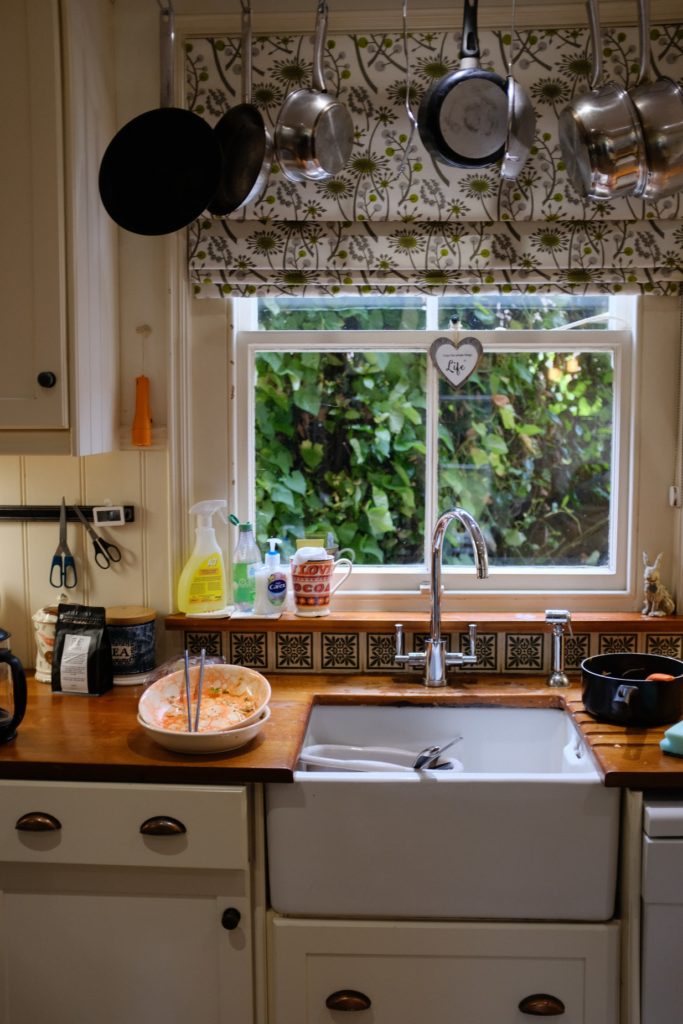
Have you ever found yourself with a sense of being overwhelmed about the state of cleanliness in your home? You aren’t alone. Messiness and clutter harm our well-being. Evidence continues to mount in the correlation between a messy house and mental and physical health. Here are six ways a dirty house affects your well-being and some solutions to support it.
Mental Clutter
Marie Kondo, a best-selling author, focused on organizing for positive mental health, is popular for a reason. She describes her methods as “magical” because, for many people, the act of sorting, cleaning, and getting rid of unwanted or unneeded items is rather freeing.
Choose a day and time to tackle a specific area of your home that needs some sorting, cleaning, and throwing out. Use bins marked with “trash” and “give away” and set a timer for sorting. Once done, clean the area that is now free of clutter!
Air Quality
A home that isn’t regularly vacuumed, swept, or dusted may be contributing to poor air quality resulting in respiratory allergies or disease. Mold, bacteria, pet dander, and airborne pathogens can all create breathing problems and sickness.
Vacuum and dust your air vents regularly. Use natural, eco friendly household cleaners and a vacuum in good working order to prevent further contaminating the air.
Sleep Quality
Are you washing your sheets at least twice a month? How often are you washing other bedding or your mattress? Skin oils, sweat, and dead skin cells are left behind every night when we sleep. These can impact our sleep quality by activating allergies, asthma, or even illness.
Create a cleaning checklist or rotating plan that includes when your family washes sheets, bedding, curtains, pillows, and mattresses, so they are done at regular intervals.
Cross Contamination
Cross-contamination happens when bacteria are transferred from one area to another. The kitchen is one of the biggest culprits with bacterias like E. coli and salmonella. Contamination can cause severe gastrointestinal issues. Not flushing toilets and not keeping the bathroom clean can allow for the spread of disease through sink handles, doorknobs, and more.
Clean and disinfect kitchens and bathrooms to prevent the spread of disease.
Anxiety
Overwhelm, and anxiety are real problems when someone is getting ready for the day and can’t find what they are looking for. Organization allows for more ease in performing tasks such as cooking, doing laundry, or making a household repair.
Starting with the highest used areas, put organizational systems in place that are easy for everyone to use. This could be a shoe and coat rack, a bookshelf, or clearly marked bins for holding loose items.
Tripping Hazards
Tripping hazards aren’t just a concern for the elderly with a high risk for broken hips or bones. Falling is dangerous for anyone as they could hit their head or fall onto another object that could impale or puncture them.
Keeping an organized home means having a place for items that keeps them safely out of walking paths.
The mental and physical health benefits of keeping a clean home are so important that if cleaning is difficult for you, it is worth outsourcing it to professionals. Nothing is more important than your well-being, especially in your home where your family spends a significant amount of time.
What if anxiety, overwhelm, and sadness could be lessened because of a cleaner home environment? What if disease, respiratory problems, and dangerous hazards could be reduced because of it? To us, that defines well-being! Contact us today so we can help.